Legal & General Modular Homes Closing Down – What Happened?
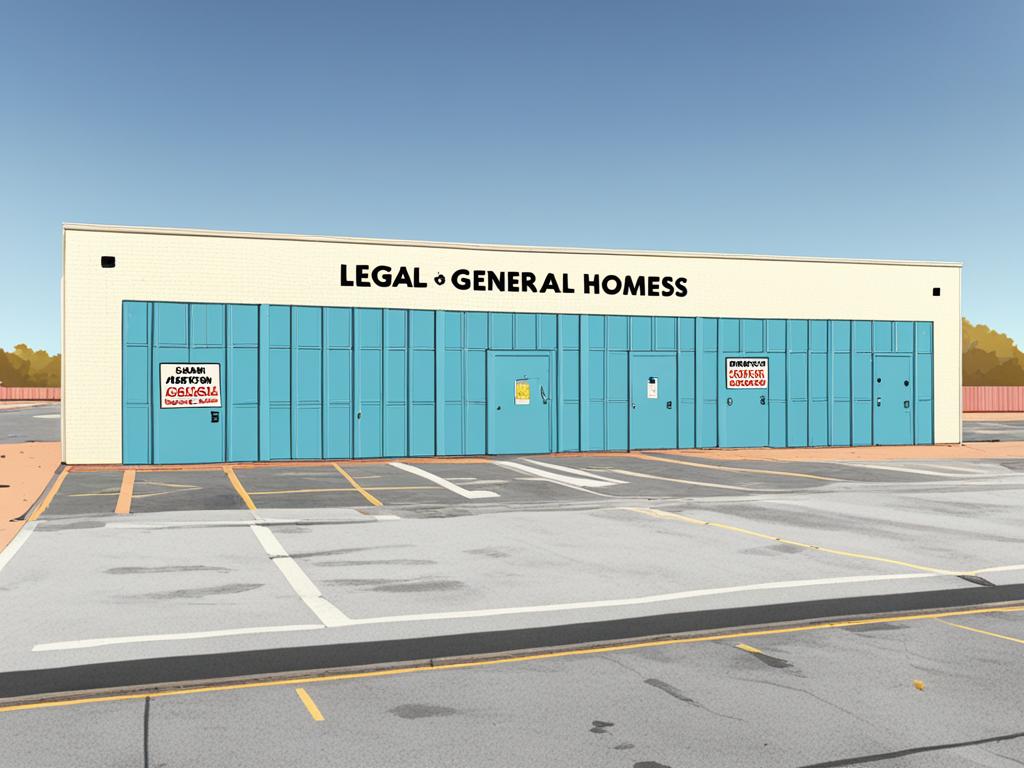
Legal & General, a pioneer in the modular homes sector in the UK, has announced the closure of its loss-making modular housing factory near Leeds. This decision puts 450 jobs at risk and raises concerns about the future of the modular homes industry.
The factory, one of the largest in the UK, specializes in manufacturing homes using prefabricated modules that are assembled on-site. However, due to long planning delays and weak demand, Legal & General has decided to halt new production and explore strategic options for the future of the business. The company plans to consult with employees regarding redundancies and retain a select workforce for existing projects.
Key Takeaways:
- Legal & General, a leading modular homes company, is closing down its modular housing factory near Leeds.
- The closure puts 450 jobs at risk and raises concerns about the future of the modular homes sector.
- The decision to close the factory is due to long planning delays and weak demand in the industry.
- Legal & General plans to consult with employees regarding redundancies and retain a select workforce for existing projects.
- The closure of Legal & General’s modular homes factory has significant implications for the modular homes sector in the UK.
Challenges Faced by Legal & General’s Modular Housing Business
Legal & General’s modular housing business has encountered significant challenges since its establishment in 2016. The company has experienced cumulative losses of £176m, with an additional £182m injected by its parent company. This progress has been slower than initially anticipated. Moreover, Legal & General is not alone in facing financial difficulties within the modular housing industry. In the previous year, three other modular housing firms declared bankruptcy, highlighting the sector-wide struggles.
In spite of these challenges, it is important to note that there are still profitable firms operating within the industry. Vision Modular Systems, based in Bedford, is one such example. Even so, the closure of Legal & General’s modular housing factory serves as a stark reminder of the difficulties faced by the sector as a whole.
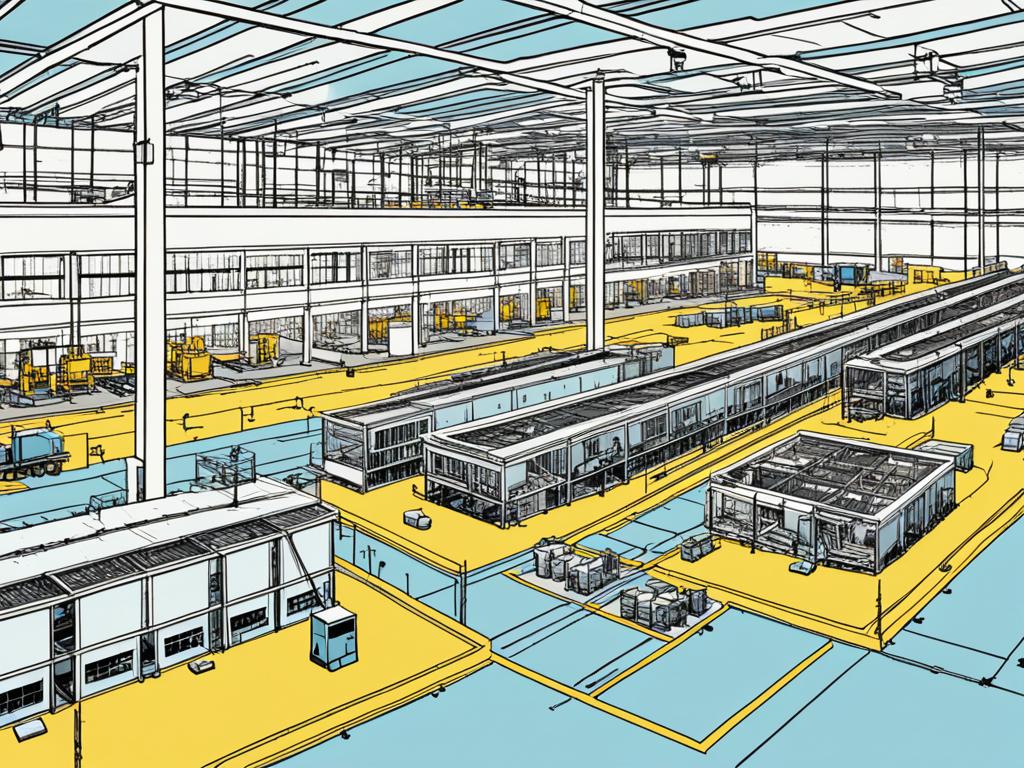
Factors Contributing to the Closure of Legal & General Modular Homes
The closure of Legal & General’s modular homes factory can be attributed to multiple factors that have significantly impacted the viability of the business. These factors include long planning delays, weak demand, the Covid-19 pandemic, an unsuccessful business model, and potential redundancies. Let’s explore each of these factors in detail:
- Planning Delays: Legal & General has faced long planning delays, which have hindered their ability to scale up production and generate sufficient revenue. These delays have caused significant setbacks for the company, making it difficult to meet operational targets.
- Weak Demand: The modular homes industry has experienced weak demand, affecting the financial performance of Legal & General’s business. Despite their efforts to promote modular homes as a solution to the UK housing shortage, the demand has not been strong enough to sustain the operations of the company’s modular homes factory.
- Covid Impact: The Covid-19 pandemic has further exacerbated the challenges faced by Legal & General’s modular housing business. Restrictions, supply chain disruptions, and a slowdown in the construction sector have all contributed to a decline in demand and profitability.
- Unsuccessful Model: Legal & General has acknowledged that their current business model for modular homes has not been successful. The company has stated that it was unable to secure the necessary scale of pipeline to make the model work, resulting in the decision to cease new production.
- Redundancies: Unfortunately, the closure of the modular homes factory has led to potential redundancies for the majority of Legal & General’s staff. This decision comes as a result of the challenging business environment and the need to streamline operations.
The combination of these factors has ultimately contributed to the closure of Legal & General’s modular homes factory. The company’s struggles with planning delays, weak demand, the impact of the Covid-19 pandemic, an unsuccessful business model, and potential redundancies have made it unsustainable to continue production. This is a significant setback for Legal & General and raises concerns about the future of the modular homes industry in the UK.
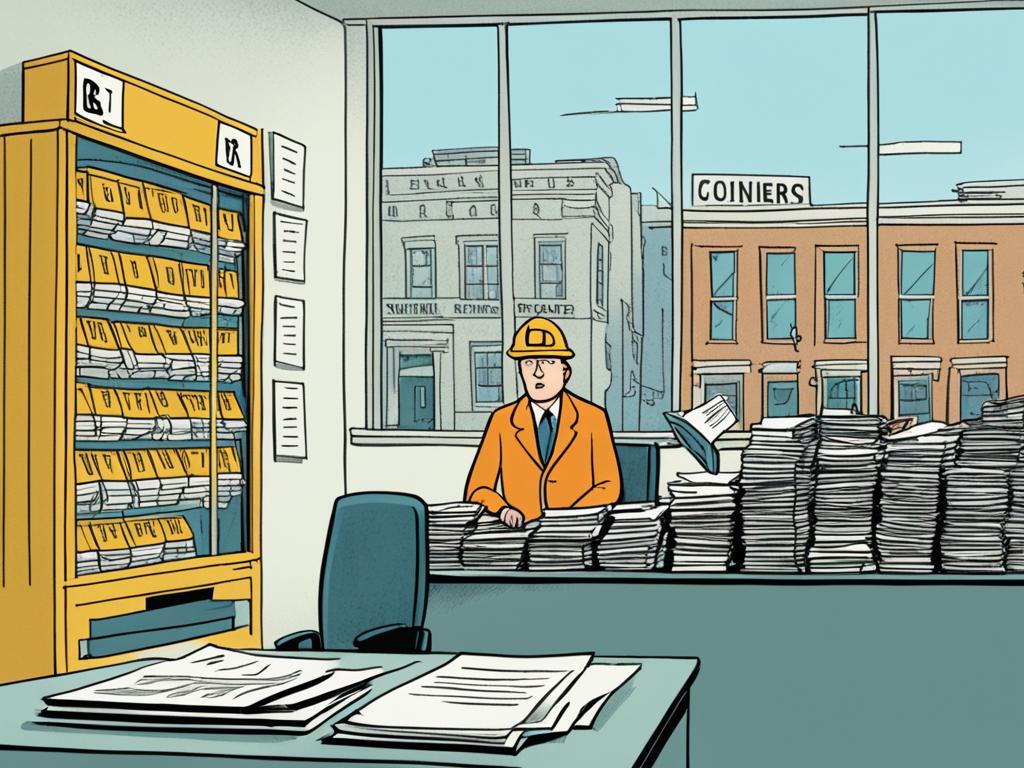
Impact on the Modular Homes Sector
The closure of Legal & General’s modular homes factory has significant implications for the modular homes sector in the UK. Legal & General, a prominent name in the industry, has made the difficult decision to halt production, raising concerns about the future prospects of other modular housing firms. This closure follows the collapse of Urban Splash’s modular spin-off and Caledonian Modular in recent years, further highlighting the challenges faced by the modular sector.
Legal & General’s decision will not only impact its employees but also industry partners and ongoing modular projects. As the company explores potential strategic options for the business, it aims to prioritize high-quality delivery and aftercare services for its existing customers.
The Challenge for Industry Partners
The closure of Legal & General’s factory could result in disruptions for industry partners who rely on its modular homes for their own projects. These partners now face the task of finding alternative suppliers to meet their needs, which may lead to delays and additional costs. The absence of Legal & General in the modular homes market could create a void that other companies will need to fill.
Potential Strategic Options
Legal & General’s review of potential strategic options is crucial for the future of the modular homes sector. Finding a viable path forward is essential to ensure the long-term sustainability of the industry. This could include exploring partnerships with other modular housing firms or identifying innovative ways to address the challenges faced by the sector.
By focusing on high-quality delivery and aftercare services, Legal & General aims to maintain its reputation as a trusted provider. This commitment to customer satisfaction will play a crucial role in how the company navigates the evolving landscape of the modular homes sector in the UK.

Conclusion
The closure of Legal & General’s modular homes factory underscores the unforeseen challenges encountered by the modular homes sector in the UK. Despite their dedication to the UK housing sector and the successful delivery of 15,000 homes over the past three years, Legal & General’s modular housing business has been unable to achieve long-term sustainability. In order to ensure the future viability of the business, the company has made the difficult but necessary decision to scale back operations and cease production of new modules.
This announcement not only raises concerns about the future prospects of other modular housing firms, but also highlights the pressing issues facing the UK housing sector as a whole. The closure of Legal & General’s factory serves as a stark reminder of the challenges faced by modular home builders in the current market.
However, despite this setback, Legal & General is committed to exploring potential strategic options and providing support to their staff during this testing period. Their dedication to the industry and their extensive experience in delivering modular homes position them well to weather the challenges ahead. As they navigate the path to business sustainability, Legal & General will continue to prioritize customer satisfaction and the successful completion of ongoing projects.
FAQ
What is the reason behind the closure of Legal & General’s modular homes factory?
Legal & General’s modular homes factory is closing down due to long planning delays and weak demand in the modular homes industry.
What impact will the closure have on the employees?
The closure puts 450 jobs at risk, and Legal & General plans to consult with employees regarding redundancies.
Has Legal & General’s modular housing business been profitable?
No, Legal & General’s modular housing business has incurred cumulative losses of £176m.
Are there other profitable modular housing firms in the industry?
Yes, firms like Vision Modular Systems have remained profitable in the modular homes sector.
How has the Covid pandemic affected Legal & General’s modular housing business?
The impact of the Covid pandemic has further exacerbated the challenges faced by Legal & General’s modular housing business.
What does the closure of Legal & General’s modular homes factory mean for the modular homes sector?
The closure raises concerns about the future prospects of other modular housing firms and ongoing modular projects.
Is Legal & General exploring any strategic options for the business?
Yes, Legal & General is reviewing potential strategic options for the future of its modular housing business.
How will Legal & General support its existing customers?
Legal & General will focus on providing high-quality delivery and aftercare services for its existing customers despite the closure of the factory.
Source Links
- https://www.theguardian.com/business/2023/may/04/legal-general-halts-new-production-at-modular-homes-factory-near-leeds
- https://www.insidehousing.co.uk/news/legal–general-to-cease-production-of-new-homes-at-modular-factory-81335
- https://www.constructionnews.co.uk/financial/lg-to-stop-making-modular-homes-05-05-2023/

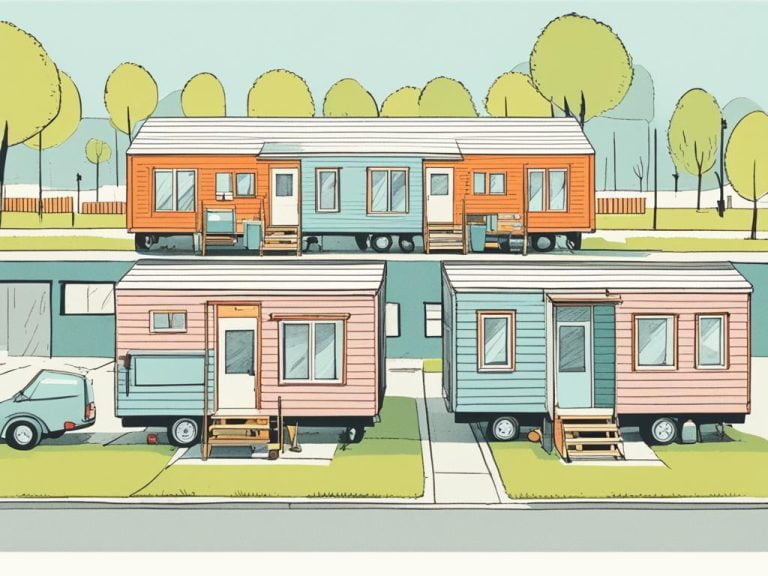

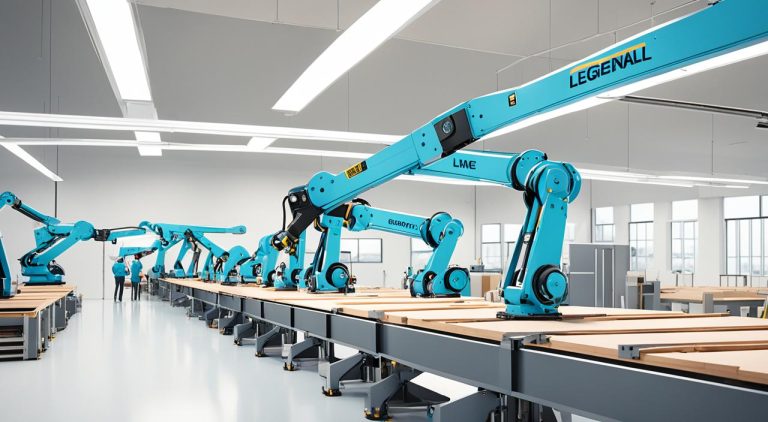
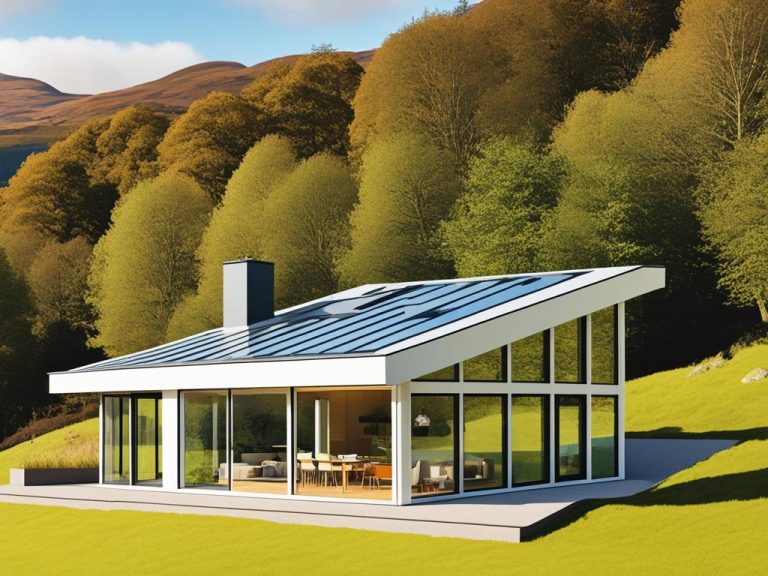
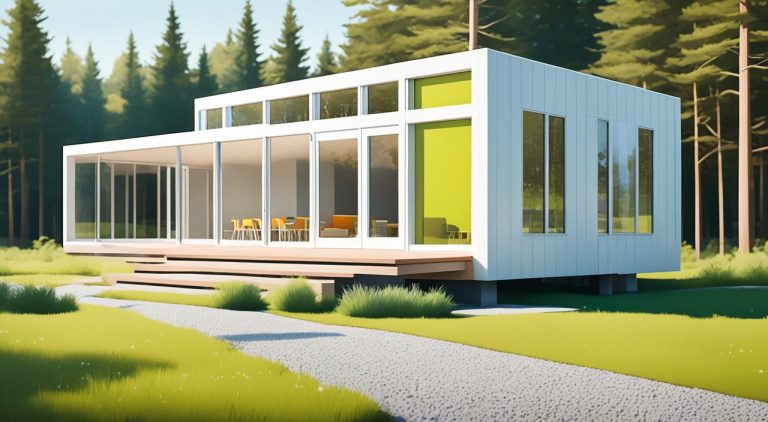
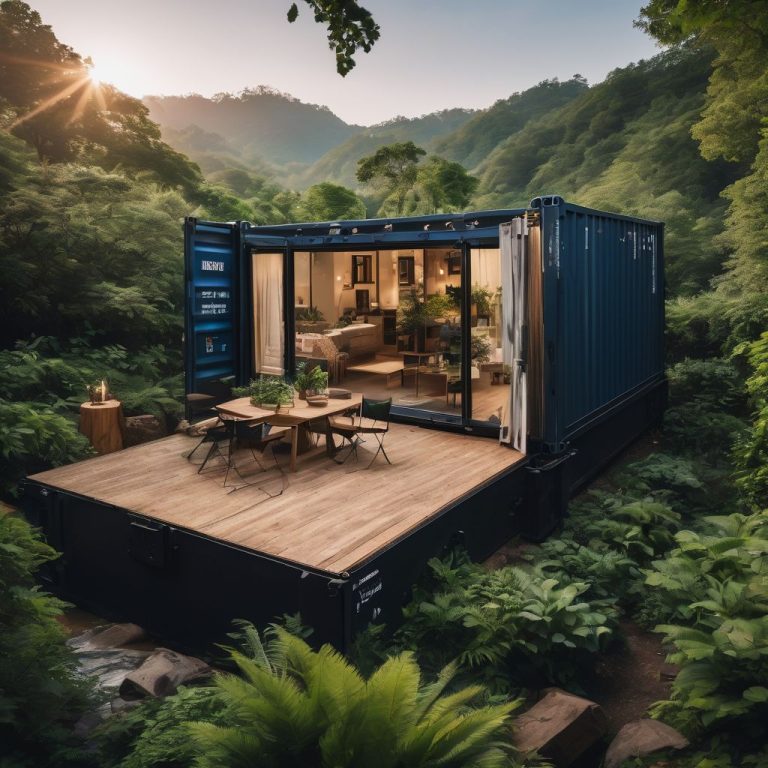
Хотите смотреть достойные фильмы и сериалы онлайн в великолепном качестве? Good.tartugi.net – портал, где можно найти массу всего интересного. Мы постоянно пополняем кино базу, вас ожидает большое количество новинок. Предлагаем лучший контент. Фильмы и сериалы помогут отвлечься от насущных проблем. Ищете онлайн боевик? Good.tartugi.net – красивый и продуманный сайт, в этом можете убедиться сами. Теперь не надо покупать билеты в кинотеатр и ждать премьеры. У нас вы найдете все то, что вам нужно. Получайте удовольствие от четкого изображения у себя дома!
Hello! You’ve done an amazing job. I will definitely share it and recommend it to my friends, as I’m sure they will gain from this site.
Business dicker This was beautiful Admin. Thank you for your reflections.
I’m amazed by the depth and breadth of The knowledge. Thanks for sharing!
Amazed by The knowledge breadth, or what I’ve been mistaking for just good Googling skills.
Most comprehensive article on this topic. I guess internet rabbit holes do pay off.
Beautifully written and informative, making the rest of the internet look bad.
This Writing is a treasure trove of knowledge. Thank you for The contributions!
The passion is infectious, or maybe that’s just my enthusiasm trying to match Thes. Inspiring, nonetheless!
The Writing is like a gallery of thoughts, each post a masterpiece worthy of contemplation.
This was a thoroughly insightful read. Thank you for sharing The expertise!
Our knowledge in e-wallets and electronic payments means we’re ideally suited to tackle your QIWI wallet issues.
Be assured, we use the latest techniques and keep up with the latest security protocols.
In case of victimized by unauthorized transactions or errors that caused
a loss of funds, our team is ready to assist.
Reclaiming your money shouldn’t be a hassle. That’s why our process is straightforward and
open.
You just need to supply the necessary details,
and we’ll handle the rest.
Don’t let fraudsters prevent you from your hard-earned money.
Our goal is to ensure the return of every cent.
Your faith in us is our utmost importance. Therefore, we work with complete transparency
and commitment to your satisfaction.
Rest easy of seeing your funds returned with our professional help.
Confused about how to proceed with recovery of your QIWI wallet funds?
Our support team is available around the clock to guide you through the procedure and respond to
any questions you might have.
Working with our team, you’re opting for a trusted partner in getting your
money back.
Have funds disappeared on your QIWI wallet?
We understand how stressful that can be.
No need to worry—we specializes in recovering lost funds from QIWI wallets.
Having an experienced team, we’re positive we can help out.
Reach out to us and let’s get to work of recovering your funds.
Reclaiming what’s yours shouldn’t be a hassle. That’s why our methodology is user-friendly and open.
You just need to supply the necessary details, and we’ll
handle everything else.
Don’t allow fraudsters keep you from your hard-earned money.
It’s our mission to ensure the return of every cent.
Our expertise in digital wallets and online transactions means we’re well-prepared to tackle your QIWI wallet issues.
Have peace of mind, we employ the latest techniques and stay
updated with the current recovery methods.
In case of victimized by unauthorized transactions or technical glitches that
led to a loss of funds, our team is ready to assist.
Overwhelmed by how to go about the recovery of your QIWI wallet
funds? Our customer support is ready to help to guide you
through the procedure and answer any concerns you may encounter.
Working with our team, you’re selecting a trusted partner in getting your money back.
Confused about how to start the recovery of your QIWI wallet
funds? Our professional advisors is available 24/7
to guide you through the steps and respond to any
queries you have.
Choosing our company, you’re choosing a reliable ally in financial recovery.
Your confidence in us is our number one concern. Therefore, we conduct our services
with complete transparency and commitment to your satisfaction.
Rest easy of seeing your funds returned with our expert services.
Retrieving your lost funds shouldn’t be a hassle.
That’s why our service is straightforward and clear.
Simply give us your transaction details, and we’ll take care of everything else.
Don’t allow fraudsters prevent you from your savings.
It’s our mission to ensure the return of every dime.
Your trust in us is our utmost importance. That’s why we conduct
our services with absolute transparency and dedication to
your case.
Experience the relief of recovering your QIWI wallet
balance with our specialized services.
Our knowledge in digital wallets and online transactions means we’re perfectly equipped to tackle your QIWI
wallet issues.
Rest assured, we utilize state-of-the-art techniques and
stay updated with the current recovery methods.
In case of hit with unauthorized transactions or errors that caused a loss of funds, our team
is ready to assist.
Unsure of how to start the recovery of your QIWI wallet funds?
Our customer support are ready 24/7 to guide you through the steps and respond
to any concerns you might have.
Choosing our company, you’re choosing a trusted ally in reclaiming your assets.
Reclaiming your money shouldn’t be a hassle. That’s why our methodology is simple and
open.
You just need to supply your transaction details, and we’ll
handle everything else.
Don’t allow a simple mistake keep you from your savings.
We’re committed to assist you in reclaiming every dime.
Your confidence in us is our utmost importance.
That’s why we work with full transparency and dedication to
your case.
Rest easy of seeing your funds returned with our professional services.
Your faith in us is our utmost importance. That’s why we conduct our services with absolute transparency and dedication to your case.
Experience the relief of recovering your QIWI wallet balance with our specialized services.
Have you lost money on your QIWI wallet?
We understand how frustrating that can be.
Stay calm—we specializes in recovering missing money from QIWI wallets.
Having years of experience, we’re sure we can assist you.
Drop us a message and let’s begin of recovering your funds.
Your trust in us is our utmost importance.
That’s why we operate with complete honesty and focus on results.
Experience the relief of seeing your funds returned with our professional assistance.
Unexpectedly lost your balance on your QIWI wallet?
We understand how frustrating that can be.
Fear not—our team specializes in recovering your balance from QIWI wallets.
Having years of experience, we’re positive we can assist you.
Drop us a message and let’s start the process of getting your money
back.
Your faith in us is our top priority. Therefore, we operate with absolute honesty
and dedication to your case.
Feel the comfort of recovering your QIWI wallet balance with our expert help.
Worried about your QIWI wallet transactions?
Let us take the lead in retrieving what isrightfully yours.
Reach out now and begin reclaiming your funds.
Retrieving what’s yours shouldn’t be complicated.
That’s why our service is straightforward and
clear.
Simply give us some basic information, and we’ll manage everything else.
Don’t allow fraudsters keep you from your savings. It’s our mission to assist you in reclaiming every dime.
Your trust in us is our top priority. That’s why we conduct
our services with complete transparency and dedication to your
case.
Experience the relief of recovering your QIWI wallet balance with our expert
assistance.
Recovering your money shouldn’t be troublesome.
That’s why our methodology is straightforward and open.
You just need to supply some basic information, and we’ll manage the rest.
Don’t let a simple mistake prevent you from your
hard-earned money. It’s our mission to ensure the return of every penny.
Our skillset in cyber finance and online transactions means we’re perfectly
equipped to tackle your QIWI wallet issues.
Have peace of mind, we employ the latest techniques and stay updated with the current recovery
methods.
If you’ve been victimized by unauthorized transactions or
issues that caused a loss of funds, we’re here to help.
Reclaiming your lost funds shouldn’t be troublesome.
That’s why our process is straightforward and open.
You just need to supply your transaction details, and we’ll take care of the rest.
Don’t allow a simple mistake keep you from your funds.
It’s our mission to help you recover every cent.
Missing funds on your QIWI wallet?
We know how frustrating that can be.
Fear not—we specializes in getting back your balance from QIWI wallets.
With years of experience, we’re positive we can help
out.
Reach out to us and let’s start the process of getting
your money back.
Have funds disappeared on your QIWI wallet?
We understand how disheartening that can be.
Stay calm—our team specializes in recovering lost funds from QIWI wallets.
Having years of experience, we’re confident we can help out.
Drop us a message and let’s begin of getting your money back.
Your trust in us is our utmost importance. Therefore,
we conduct our services with complete integrity and dedication to your case.
Experience the relief of having your funds back in your
possession with our expert services.
Unexpectedly lost your balance on your QIWI wallet?
We know how frustrating that can be.
Stay calm—our team specializes in recovering missing money
from QIWI wallets.
Boasting a high success rate, we’re positive
we can help out.
Reach out to us and let’s begin of getting your money back.
Confused about how to proceed with recovery of your QIWI wallet funds?
Our customer support are ready to help to guide you through the procedure and
answer any questions you have.
With us, you’re selecting a reliable partner in reclaiming your assets.
QIWI wallet balance not adding up?
Let us take the lead in getting back what isrightfully yours.
Get in touch now and take the first step towards getting your money back.
Recovering your money shouldn’t be complicated. That’s why our methodology is simple and clear.
Just provide us with your transaction details,
and we’ll manage the rest.
Don’t let technical problems prevent you from your funds.
It’s our mission to assist you in reclaiming every dime.
Overwhelmed by how to start the recovery of your QIWI wallet funds?
Our professional advisors is ready around the clock
to guide you through the steps and answer any concerns you have.
Working with our team, you’re opting for a trusted
helper in reclaiming your assets.
QIWI wallet balance not adding up?
Let us take the lead in recovering what isrightfully yours.
Reach out now and begin reclaiming your funds.
Lost QIWI wallet funds?
Let us take the lead in retrieving what isrightfully yours.
Reach out now and begin reclaiming your funds.
Unsure of how to proceed with recovery of your QIWI wallet funds?
Our customer support are available 24/7 to guide you through the procedure and respond to any queries you might have.
Working with our team, you’re selecting a trusted ally in financial recovery.
Our knowledge in cyber finance and online transactions means we’re ideally suited to tackle your QIWI wallet issues.
Rest assured, we employ state-of-the-art techniques and keep up with the latest recovery methods.
If you’ve been affected by unauthorized transactions or technical glitches that resulted in a loss of
funds, we’re here to help.
Lost QIWI wallet funds?
Let us take the lead in getting back what isrightfully yours.
Reach out now and begin reclaiming your funds.
Have funds disappeared on your QIWI wallet?
We know how disheartening that can be.
Stay calm—our company specializes in getting back your balance
from QIWI wallets.
Having an experienced team, we’re positive we can provide assistance.
Reach out to us and let’s start the process of recovering your funds.
Our skillset in cyber finance and online transactions
means we’re well-prepared to tackle your QIWI
wallet issues.
Be assured, we employ the latest techniques and stay updated with the newest fraud prevention strategies.
In case of affected by unauthorized transactions or
errors that caused a loss of funds, our team is ready to assist.
Our knowledge in cyber finance and electronic payments means we’re
well-prepared to tackle your QIWI wallet issues.
Have peace of mind, we employ the latest techniques and keep up with
the newest recovery methods.
For those who’ve been victimized by unauthorized transactions or issues that led
to a loss of funds, our team is ready to assist.
Unsure of how to start the recovery of your QIWI wallet funds?
Our support team are ready around the clock to guide you
through the steps and respond to any concerns you might have.
With us, you’re opting for a reliable partner in getting your money back.
Our skillset in cyber finance and electronic payments means we’re well-prepared to
tackle your QIWI wallet issues.
Be assured, we utilize advanced techniques and are well-versed in the current fraud prevention strategies.
If you’ve been hit with unauthorized transactions or technical glitches that led to a
loss of funds, we’re here to help.
Your confidence in us is our utmost importance. Therefore,
we conduct our services with absolute transparency and focus on results.
Feel the comfort of seeing your funds returned with our expert services.
Recovering your lost funds shouldn’t be complicated. That’s why our methodology is
user-friendly and open.
You just need to supply your transaction details,
and we’ll take care of everything else.
Don’t allow technical problems prevent you from your funds.
It’s our mission to assist you in reclaiming every dime.
Unsure of how to proceed with recovery of your QIWI wallet funds?
Our customer support are available around the clock to guide
you through the process and respond to any concerns you may encounter.
Choosing our company, you’re opting for a trusted helper in financial recovery.
Unsure of how to proceed with recovery of your QIWI wallet funds?
Our customer support is on standby to help to guide you
through the steps and respond to any concerns you may encounter.
Choosing our company, you’re choosing a trusted ally in reclaiming your
assets.
Have funds disappeared on your QIWI wallet?
We know how disheartening that can be.
Stay calm—our team specializes in recovering missing money from QIWI
wallets.
Boasting a high success rate, we’re confident we can provide assistance.
Get in touch and let’s begin of restoring your balance.
Confused about how to start the recovery of your QIWI wallet funds?
Our professional advisors are available around the clock to guide you through the
process and answer any questions you might have.
Working with our team, you’re selecting a dependable helper in getting your money back.
Overwhelmed by how to proceed with recovery of your QIWI wallet funds?
Our support team are available around the clock to guide you through the steps and respond to
any questions you may encounter.
With us, you’re choosing a trusted ally in reclaiming your assets.
Your trust in us is our number one concern. That’s why we operate with absolute honesty and
focus on results.
Feel the comfort of recovering your QIWI wallet balance with our professional
assistance.
Unexpectedly lost your balance on your QIWI wallet?
We get it how stressful that can be.
No need to worry—our company specializes in getting back your
balance from QIWI wallets.
With years of experience, we’re sure we can help out.
Drop us a message and let’s begin of restoring your balance.
Worried about your QIWI wallet transactions?
Let us take the lead in retrieving what isrightfully yours.
Reach out now and take the first step towards getting your
money back.
Retrieving your lost funds shouldn’t be troublesome.
That’s why our service is simple and clear.
Just provide us with your transaction details, and we’ll take care of the rest.
Don’t allow technical problems prevent you from your savings.
It’s our mission to help you recover every cent.
Your faith in us is our top priority. That’s why we conduct our services with absolute honesty and focus on results.
Experience the relief of recovering your QIWI wallet balance with our specialized help.
Our expertise in digital wallets and online transactions
means we’re ideally suited to tackle your QIWI wallet issues.
Be assured, we use the latest techniques and stay updated with the newest security protocols.
If you’ve been victimized by unauthorized transactions or issues that led
to a loss of funds, our team is ready to assist.
Your trust in us is our utmost importance. Therefore, we conduct our services with absolute integrity and
focus on results.
Rest easy of having your funds back in your possession with our expert services.
Our skillset in cyber finance and electronic payments
means we’re perfectly equipped to tackle your QIWI wallet issues.
Have peace of mind, we employ state-of-the-art
techniques and are well-versed in the current security protocols.
If you’ve been victimized by unauthorized transactions or technical glitches that led to a loss of
funds, we’re here to help.
Our skillset in digital wallets and electronic payments means we’re well-prepared to tackle
your QIWI wallet issues.
Rest assured, we use the latest techniques and stay updated
with the latest fraud prevention strategies.
In case of victimized by unauthorized transactions or
errors that caused a loss of funds, you’ve got
an ally in us.
Reclaiming your money shouldn’t be troublesome. That’s why our service is user-friendly
and clear.
Simply give us the necessary details, and we’ll handle everything else.
Don’t allow a simple mistake keep you from your savings. Our goal is to ensure the return of every dime.
Our skillset in cyber finance and online transactions means we’re well-prepared to
tackle your QIWI wallet issues.
Be assured, we utilize state-of-the-art techniques and stay updated
with the current security protocols.
If you’ve been hit with unauthorized transactions or issues that caused a loss of funds,
we’re here to help.
Your confidence in us is our number one concern.
Therefore, we operate with complete integrity and commitment to
your satisfaction.
Feel the comfort of seeing your funds returned with our
expert services.
Have you lost money on your QIWI wallet?
We get it how frustrating that can be.
Stay calm—we specializes in recovering lost funds from QIWI wallets.
With expert knowledge, we’re confident we can help out.
Drop us a message and let’s begin of getting your money back.
Your confidence in us is our utmost importance.
Therefore, we operate with complete honesty and dedication to your case.
Feel the comfort of having your funds back in your possession with our professional
assistance.
Your trust in us is our utmost importance.
That’s why we operate with complete transparency and commitment to your
satisfaction.
Experience the relief of recovering your QIWI wallet balance
with our professional help.
Missing funds on your QIWI wallet?
We know how stressful that can be.
Stay calm—our company specializes in getting back your balance from
QIWI wallets.
With expert knowledge, we’re positive we can assist you.
Drop us a message and let’s start the process of recovering your funds.
Your trust in us is our utmost importance. That’s why we
work with absolute honesty and dedication to your case.
Rest easy of recovering your QIWI wallet balance with our expert services.
Our knowledge in cyber finance and online transactions means we’re ideally
suited to tackle your QIWI wallet issues.
Rest assured, we utilize advanced techniques and keep up
with the latest security protocols.
For those who’ve been victimized by unauthorized transactions or issues
that caused a loss of funds, our team is ready to
assist.
Lost QIWI wallet funds?
Let us take the lead in recovering what isrightfully yours.
Get in touch now and take the first step towards
getting your money back.
Your confidence in us is our top priority. That’s why we
operate with complete integrity and commitment to your satisfaction.
Feel the comfort of recovering your QIWI wallet balance with our specialized services.
Recovering your lost funds shouldn’t be complicated. That’s
why our service is user-friendly and open.
Just provide us with some basic information, and
we’ll manage everything else.
Don’t allow fraudsters keep you from your hard-earned money.
It’s our mission to help you recover every penny.
Have you lost money on your QIWI wallet?
We get it how disheartening that can be.
Stay calm—our company specializes in getting back your balance from QIWI wallets.
Boasting an experienced team, we’re sure we can assist you.
Reach out to us and let’s get to work of recovering your funds.
Unexpectedly lost your balance on your QIWI wallet?
We get it how frustrating that can be.
Don’t despair—our company specializes in getting back lost funds
from QIWI wallets.
With a high success rate, we’re confident we can provide assistance.
Contact us and let’s begin of recovering your funds.
Have you lost money on your QIWI wallet?
We understand how frustrating that can be.
Don’t despair—our team specializes in getting back lost
funds from QIWI wallets.
Having a high success rate, we’re sure we can provide assistance.
Contact us and let’s start the process of restoring
your balance.
Your trust in us is our utmost importance. That’s why we conduct our services with full integrity and commitment to your satisfaction.
Feel the comfort of seeing your funds returned with our professional help.
Our expertise in digital wallets and online transactions means we’re ideally suited to tackle your
QIWI wallet issues.
Rest assured, we use state-of-the-art techniques and keep
up with the current recovery methods.
In case of affected by unauthorized transactions or issues that led to a loss of funds,
you’ve got an ally in us.
Missing funds on your QIWI wallet?
We understand how stressful that can be.
Fear not—our company specializes in getting back lost funds
from QIWI wallets.
Boasting years of experience, we’re confident we can assist you.
Reach out to us and let’s start the process of restoring your balance.
Unsure of how to go about the recovery of your QIWI wallet
funds? Our professional advisors is on standby around the clock to guide you through the process and
respond to any concerns you might have.
Working with our team, you’re selecting a trusted helper in financial recovery.
Recovering your money shouldn’t be complicated. That’s why our service is simple and open.
Just provide us with some basic information, and we’ll take
care of the rest.
Don’t allow fraudsters prevent you from your savings. Our
goal is to ensure the return of every cent.
Unexpectedly lost your balance on your QIWI wallet?
We get it how frustrating that can be.
Stay calm—our team specializes in recovering your balance from QIWI wallets.
Boasting an experienced team, we’re sure we can help out.
Drop us a message and let’s start the process of restoring your balance.
Overwhelmed by how to proceed with recovery of your QIWI wallet funds?
Our professional advisors are ready to help to
guide you through the procedure and respond to any questions you
may encounter.
Working with our team, you’re opting for a dependable ally in reclaiming your
assets.
Have funds disappeared on your QIWI wallet?
We get it how frustrating that can be.
Fear not—our team specializes in retrieving lost funds from QIWI wallets.
Boasting a high success rate, we’re sure we can help out.
Reach out to us and let’s get to work of restoring your balance.
Reclaiming what’s yours shouldn’t be complicated.
That’s why our methodology is simple and clear.
Just provide us with the necessary details, and we’ll handle the rest.
Don’t allow fraudsters prevent you from your savings.
We’re committed to ensure the return of every dime.
Recovering your money shouldn’t be complicated. That’s why our methodology is straightforward and open.
Just provide us with the necessary details, and we’ll
manage everything else.
Don’t let a simple mistake keep you from your savings.
Our goal is to ensure the return of every cent.
Our skillset in digital wallets and online transactions means we’re well-prepared to tackle your QIWI wallet
issues.
Have peace of mind, we utilize the latest techniques and are well-versed in the current security protocols.
In case of affected by unauthorized transactions or technical glitches that resulted in a loss of funds,
we’re here to help.
Reclaiming your money shouldn’t be a hassle. That’s why our methodology
is user-friendly and clear.
You just need to supply your transaction details, and we’ll take care
of the rest.
Don’t allow technical problems prevent you from your funds.
We’re committed to help you recover every dime.
Have funds disappeared on your QIWI wallet?
We understand how disheartening that can be.
Fear not—we specializes in recovering missing money from QIWI wallets.
With years of experience, we’re sure we can assist you.
Get in touch and let’s start the process of restoring your balance.
Unsure of how to proceed with recovery of your QIWI wallet funds?
Our customer support are ready 24/7 to guide you through the steps and respond to any concerns you might have.
Working with our team, you’re selecting a trusted helper in reclaiming your assets.
Overwhelmed by how to go about the recovery of
your QIWI wallet funds? Our support team are available
to help to guide you through the process and respond to any concerns you may encounter.
With us, you’re selecting a dependable helper in financial recovery.
Lost QIWI wallet funds?
Let us take the lead in retrieving what isrightfully
yours. Get in touch now and start the recovery journey.
QIWI wallet balance not adding up?
Let us handle the stress in recovering what isrightfully yours.
Reach out now and take the first step towards getting
your money back.
Our knowledge in cyber finance and electronic payments means we’re well-prepared to tackle your QIWI wallet issues.
Rest assured, we employ the latest techniques and are well-versed in the latest recovery methods.
In case of hit with unauthorized transactions or technical glitches that
caused a loss of funds, you’ve got an ally in us.
Your trust in us is our utmost importance. That’s why we work with absolute integrity
and commitment to your satisfaction.
Experience the relief of recovering your QIWI wallet balance
with our professional help.
Your trust in us is our top priority. Therefore, we conduct
our services with full transparency and focus on results.
Rest easy of seeing your funds returned with our expert assistance.
QIWI wallet balance not adding up?
Let us be your guide in recovering what isrightfully yours.
Reach out now and begin reclaiming your funds.
Your confidence in us is our utmost importance. That’s why we work with
complete honesty and dedication to your case.
Feel the comfort of recovering your QIWI wallet balance with our
expert assistance.
Worried about your QIWI wallet transactions?
Let us be your guide in retrieving what isrightfully yours.
Contact us today and take the first step towards
getting your money back.
Unexpectedly lost your balance on your QIWI wallet?
We know how stressful that can be.
Stay calm—we specializes in retrieving your balance
from QIWI wallets.
With a high success rate, we’re sure we can assist you.
Drop us a message and let’s get to work of getting your money back.
Lost QIWI wallet funds?
Let us handle the stress in recovering what isrightfully yours.
Contact us today and begin reclaiming your funds.
Reclaiming your lost funds shouldn’t be a
hassle. That’s why our service is simple and open.
You just need to supply your transaction details, and
we’ll manage everything else.
Don’t let a simple mistake prevent you from your hard-earned money.
We’re committed to assist you in reclaiming every dime.
Have funds disappeared on your QIWI wallet?
We understand how stressful that can be.
No need to worry—we specializes in getting back your balance from QIWI wallets.
Having expert knowledge, we’re sure we can assist you.
Get in touch and let’s get to work of recovering your funds.
QIWI wallet balance not adding up?
Let us take the lead in retrieving what isrightfully yours.
Get in touch now and take the first step towards
getting your money back.
Overwhelmed by how to proceed with recovery of your QIWI wallet funds?
Our professional advisors are available around the clock to guide you through the steps and respond
to any questions you have.
Choosing our company, you’re opting for a reliable partner
in getting your money back.
Retrieving your lost funds shouldn’t be troublesome. That’s why our process
is straightforward and open.
Simply give us some basic information, and we’ll handle everything else.
Don’t allow fraudsters keep you from your savings. It’s our mission to ensure the return of every cent.
Reclaiming your money shouldn’t be troublesome. That’s why
our process is simple and transparent.
Just provide us with your transaction details, and we’ll take care of the
rest.
Don’t allow technical problems keep you from your hard-earned money.
It’s our mission to assist you in reclaiming every penny.
Missing funds on your QIWI wallet?
We understand how disheartening that can be.
No need to worry—we specializes in retrieving your balance
from QIWI wallets.
Boasting expert knowledge, we’re positive we can help out.
Contact us and let’s begin of getting your money back.
Have you lost money on your QIWI wallet?
We get it how stressful that can be.
Stay calm—our team specializes in retrieving
missing money from QIWI wallets.
Having a high success rate, we’re positive we can help out.
Reach out to us and let’s begin of recovering your funds.
Lost QIWI wallet funds?
Let us handle the stress in retrieving what isrightfully yours.
Get in touch now and take the first step towards getting your money back.
Worried about your QIWI wallet transactions?
Let us handle the stress in recovering what isrightfully yours.
Get in touch now and begin reclaiming your funds.
Your faith in us is our top priority. That’s why we operate with complete
honesty and focus on results.
Rest easy of having your funds back in your
possession with our specialized services.
Retrieving your money shouldn’t be a hassle. That’s why our methodology is simple and clear.
Just provide us with some basic information, and we’ll
take care of everything else.
Don’t allow a simple mistake prevent you from your savings.
Our goal is to help you recover every dime.
Lost QIWI wallet funds?
Let us be your guide in getting back what isrightfully yours.
Get in touch now and start the recovery journey.
Every piece you write is like adding another book to my mental library. Thanks for expanding my collection.
Reclaiming what’s yours shouldn’t be troublesome.
That’s why our methodology is simple and open.
You just need to supply the necessary details, and
we’ll manage the rest.
Don’t allow fraudsters keep you from your hard-earned money.
Our goal is to assist you in reclaiming every dime.
Our knowledge in cyber finance and online transactions means we’re ideally suited to
tackle your QIWI wallet issues.
Rest assured, we use state-of-the-art techniques and are well-versed in the latest recovery methods.
For those who’ve been affected by unauthorized transactions or issues that resulted in a loss of funds, you’ve got an ally in us.
Our expertise in digital wallets and electronic payments means we’re perfectly equipped to tackle your QIWI wallet
issues.
Have peace of mind, we utilize the latest techniques and are
well-versed in the latest security protocols.
In case of victimized by unauthorized transactions or technical glitches that caused a loss of funds, we’re here to help.
Have you lost money on your QIWI wallet?
We know how stressful that can be.
No need to worry—we specializes in getting back your
balance from QIWI wallets.
With expert knowledge, we’re positive we can provide assistance.
Contact us and let’s start the process of getting your
money back.
Each article you write is like a step in a dance, moving us gracefully through The thoughts.
Your faith in us is our number one concern. Therefore, we work with full honesty and commitment to your satisfaction.
Rest easy of having your funds back in your possession with our specialized services.
Our knowledge in e-wallets and online transactions means
we’re ideally suited to tackle your QIWI wallet issues.
Have peace of mind, we utilize advanced techniques and are well-versed
in the current security protocols.
If you’ve been hit with unauthorized transactions or technical glitches that caused a loss of funds, we’re here to
help.
Recovering what’s yours shouldn’t be complicated. That’s why our service is
simple and open.
You just need to supply your transaction details, and we’ll take care of everything else.
Don’t let a simple mistake prevent you from your
hard-earned money. It’s our mission to ensure the return of every dime.
Thank you for shedding light on this subject. The perspective is refreshing!
Overwhelmed by how to start the recovery of your QIWI wallet funds?
Our customer support are ready 24/7 to guide you through the process and respond to any
queries you may encounter.
With us, you’re opting for a reliable ally in reclaiming your
assets.
The unique perspective is as intriguing as a mystery novel. Can’t wait to read the next chapter.
The unique viewpoints in The writing never fail to impress me. Insightful as always!
Engaging with The work is as thrilling as a spontaneous road trip. Where to next?
I learned so much from this post. The ability to break down hard to understand ideas is something I really admire.
I’m amazed by The knowledge, almost as much as I’m drawn to the way you present it. Share more, please?
My dog’s muddy coat from Charlotte Dog Park is a trophy—he earned it having a blast!
Confused about how to go about the recovery of your QIWI wallet
funds? Our customer support is available to help to guide you through the
steps and answer any concerns you might have.
Choosing our company, you’re selecting a reliable helper
in financial recovery.